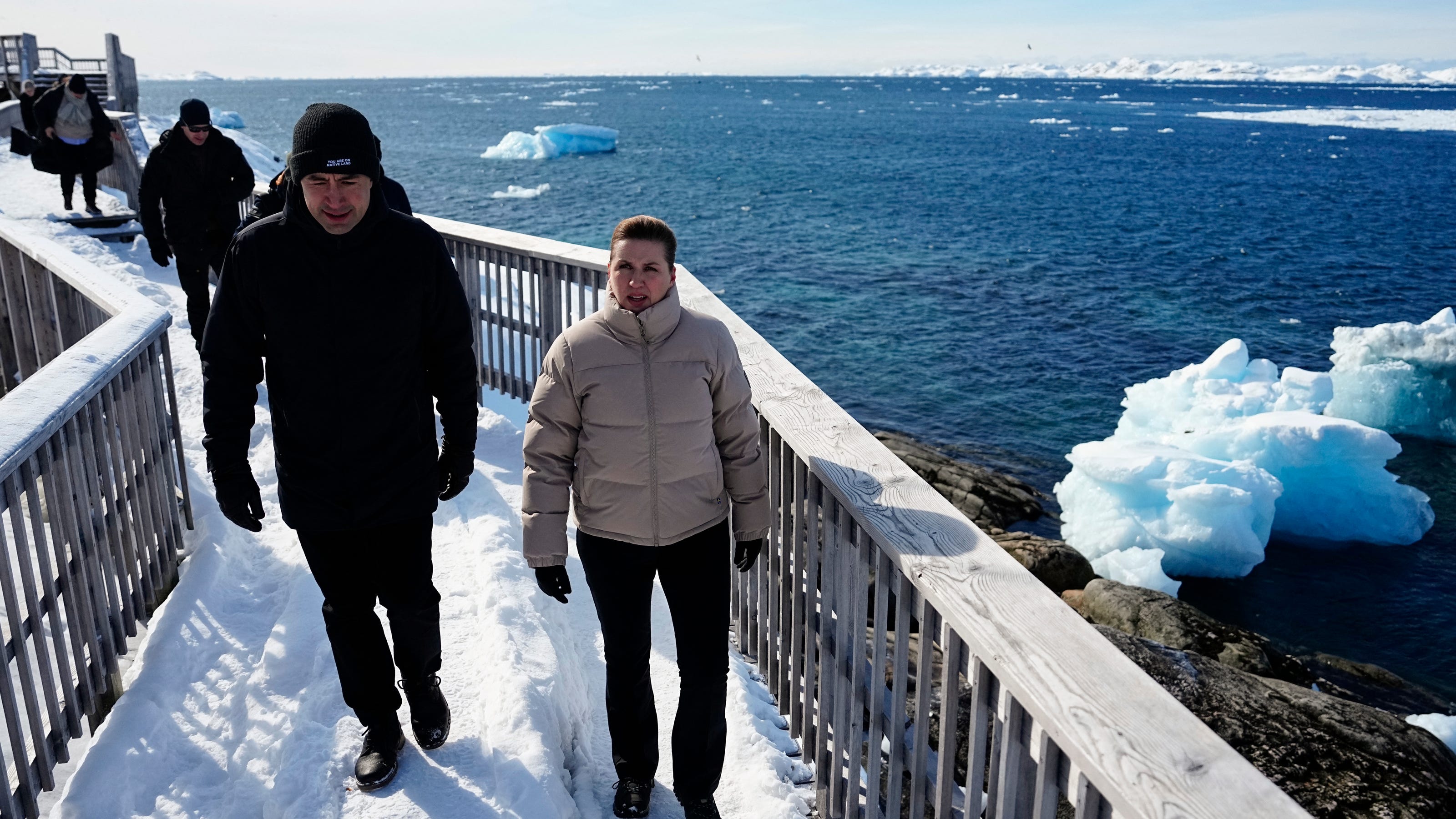Greenland's Sovereignty: Denmark's Defiance of Trump – A New Era for Arctic Relations?
Editor’s Note: The recent events surrounding Greenland's sovereignty and Denmark's rejection of Trump's purchase offer continue to shape the Arctic political landscape. This article examines the key takeaways and implications of this pivotal moment.
Why This Topic Matters:
Greenland's sovereignty has long been a point of contention, with Denmark maintaining significant influence over the island's affairs. Donald Trump's unprecedented attempt to purchase Greenland thrust this complex relationship into the global spotlight, sparking debate over self-determination, resource control, and the future of Arctic geopolitics. Understanding this event is crucial for anyone interested in international relations, Arctic policy, and the growing competition for resources in the melting Arctic region. This article will explore the historical context, the immediate reactions, and the potential long-term consequences of Denmark's firm rejection of Trump's proposal. Key points discussed include Greenlandic autonomy, strategic resource implications, and the evolving dynamics between the US, Denmark, and Greenland.
Key Takeaways:
| Takeaway | Explanation |
|---|---|
| Rejection of US Purchase Offer: | Denmark unequivocally rejected the US proposal to buy Greenland, citing its unwavering commitment to Greenland's self-determination. |
| Strengthened Greenlandic Autonomy: | The incident highlighted Greenland's growing desire for greater autonomy and self-governance, potentially accelerating its path towards independence. |
| Shifting Geopolitical Dynamics: | The event underscored the increasing competition for influence and resources in the Arctic, involving major players like the US, Russia, and China. |
| Focus on Resource Management: | Greenland's vast mineral and energy resources became a focal point, emphasizing the need for sustainable and responsible development strategies. |
Greenland's Sovereignty: A Historical Overview
Greenland's relationship with Denmark is a long and complex one, steeped in colonialism and evolving notions of self-determination. While Greenland enjoys significant home rule, its ultimate sovereignty remains a subject of ongoing debate. Denmark's historical control over Greenland has shaped its economic and political landscape, influencing everything from infrastructure development to resource management. However, a growing independence movement within Greenland seeks to establish complete sovereignty, giving the island greater control over its destiny and resources.
Interactive Elements on Greenland's Sovereignty: Navigating Complex Relationships
The Trump administration's proposal introduced several interactive elements into the already complex relationship between Greenland, Denmark, and the United States. These included:
- Geopolitical Implications: The attempted purchase was seen as a bold move in the context of increasing great power competition in the Arctic. This competition centers on access to strategic resources, shipping routes, and military positioning.
- Economic Considerations: The potential financial incentives offered by the US raised questions regarding Greenland's economic future and its ability to manage its own resources sustainably.
- Diplomatic Fallout: Denmark's swift and unequivocal rejection caused diplomatic tensions, impacting broader US-Danish relations and raising questions about future collaborations.
- Greenlandic Self-Determination: The incident served as a powerful catalyst for Greenland's growing desire for self-governance and potentially, full independence.
This interplay of geopolitical, economic, and diplomatic factors significantly impacted the narrative surrounding Greenland's sovereignty.
Advanced Insights on Greenland's Sovereignty: Future Prospects
The rejection of Trump’s offer has opened a new chapter in Greenland's relationship with Denmark and the rest of the world. Further analysis reveals:
- Increased Focus on Greenlandic Self-Governance: This episode is likely to accelerate the movement towards greater autonomy, leading to further negotiations regarding Greenland's future status.
- Strengthened Danish-Greenlandic Relations: While the incident created short-term tensions, it also highlighted the deep-rooted ties between Denmark and Greenland, potentially leading to a strengthening of their partnership in the long term.
- Evolving Arctic Geopolitics: The event placed Greenland squarely at the center of Arctic geopolitical dynamics, highlighting its strategic importance in the race for resources and influence in the region.
- Sustainable Resource Management: The focus on Greenland's resources highlights the urgent need for careful planning and international cooperation to ensure sustainable development in the Arctic.
People Also Ask (NLP-Friendly Answers)
Q1: What is Greenland's current relationship with Denmark?
A: Greenland is an autonomous territory within the Kingdom of Denmark, enjoying significant self-governance but not full independence.
Q2: Why is Greenland important geopolitically?
A: Greenland’s strategic location, vast natural resources, and melting ice cap make it a key player in Arctic geopolitics, attracting the attention of major world powers.
Q3: How did Denmark respond to Trump's offer to buy Greenland?
A: Denmark firmly rejected the offer, emphasizing Greenland's self-determination and its commitment to its autonomy.
Q4: What are the challenges facing Greenland in terms of sovereignty?
A: Challenges include balancing economic development with environmental protection, managing resource extraction responsibly, and navigating complex international relations.
Q5: What is the future of Greenland's sovereignty?
A: The future is uncertain, but the recent events point towards increased calls for greater autonomy and potentially, full independence in the coming years.
Practical Tips for Understanding Greenland's Sovereignty
- Research Greenland's history: Understand the historical context of its relationship with Denmark.
- Follow Arctic news: Stay updated on developments in the Arctic region, including geopolitical shifts and resource management initiatives.
- Learn about Greenlandic culture: Familiarize yourself with the perspectives and aspirations of the Greenlandic people.
- Read reports from international organizations: Examine reports from organizations like the Arctic Council for deeper insight into Arctic issues.
- Engage in informed discussions: Participate in discussions about Greenland's sovereignty and its implications for the Arctic.
Summary:
The attempted purchase of Greenland highlighted the island's growing desire for self-determination and underscored the complex interplay of geopolitical factors in the Arctic. Denmark's decisive rejection of the offer solidified Greenland's autonomous status, at least for now, but also intensified discussions about its future trajectory.
Call to Action: Ready to dive deeper? Subscribe for more insights on Greenland's evolving sovereignty and the future of the Arctic.

